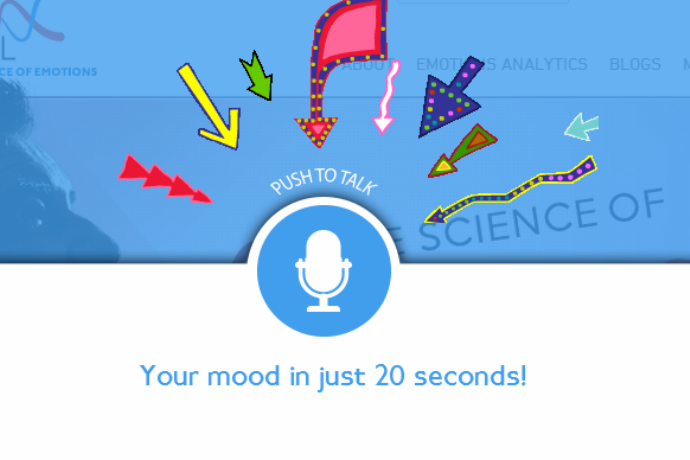 Photo: BeyondVerbal.com
Photo: BeyondVerbal.comWhile a new smartphone app is said to have the ability to determine a person's mood based on their voice alone, researchers are looking at the technology for much more serious applications like fraud detection and airline passenger screening.
Tel Aviv, Isreal's Beyond Verbal Communications Ltd. has developed Moodies, an app that analyses a person's voice to read into their feelings with a reported 80% accuracy rate. An algorithm reads the voice's timing, energy, frequency and spectral content to determine if a person is feeling anger, happiness, or a wide range of emotions.
The app works in real time, using patented technology called Emotions Analytics to extract, decode and measure human mood and attitudes. The technology is based on "18 years of research by physicists and neuropsychologists, who studied more than 70,000 test subjects in more than 30 languages," according to the company.
The developer admits that the app was made for self-diagnosis and "a bit of fun," but some voice-analysis experts are concerned over the possibilities of using cheap, easy-to-use technology for all the wrong reasons.
"Our responsibility is the people we work with, the partners we choose," says Dan Emodi, Beyond Verbal's vice president for marketing and strategic accounts. He goes on to explain that there is no way for the company to "prevent anyone from taking our product and activating it on somebody else without their knowledge."
Tel Aviv is currently a hot-bed of this type of technology, thanks in part to its focus on security applications. Nemesysco Ltd. has developed something they call "honesty maintenance" software that can determine if a job applicant is lying during an interview based on 120 vocal parameters. While other branches of this technology are focused on voice-recognition and body-language interpretation, the Isreali developers believe that a voice's mood output is much more important.
But assistant professor Andrew Baron of the University of British Columbia in Vancouver shows concern over the use of this voice-recognition technology in this early stage. "We simply don't have the technology today, at the level of cognitive neuroscience, to really know the precise content of a person's thought or emotion."
Despite this doubt, Beyond Verbal has just secured $2.8 million in funding for call center applications to better decifer customers' emotions during a call and allow operators to handle accordingly. Startup EmoSpeech out of Puebla, Mexico and Cambridge, Mass. is also focused on the same market. Its aim is to identify four basic emotional states: happiness, anger, impatience and neutrality. The software is currently implemented in Mexico and hopes to break into the U.S. market soon, according to Chief Executive Miriam Reyes.
Will a piece of software have the ability to correctly read our minds in the future? Is a wide-spread analysis of your emotions a breach of your privacy and security? These are the issues we face as technology further crosses into the realm of decifering more than just our keystrokes on a keyboard.
The Moodies app can currently be downloaded for free from the Apple Store for all iOS devices using iOS 7.0 or later. If you don't have a smartphone, the technology is also available straight from the firm's website.














